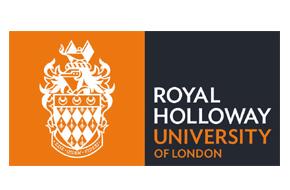Six miles from Royal Holloway amongst London’s many suburban satellites lies Shepperton, where JG Ballard allowed his imagination to run wild. In his 1979 novel, The Unlimited Dream Company, the suburb undergoes messianic transformation as its residents learn to fly and transcend the limits of their humanity. Just a few short miles away in Heathrow Airport, Ballard imagined a gang of symphorophiliiasts -or car-crash sexual fetishists - wrecking havoc on the motorways whilst the nearby Kingston Shopping Centre inspired Ballard to imagine the mall dominating local live and organising a fascistic and violent consumer society. Across his scores of novels and short stories, JG Ballard created a psycho-geography of Royal Holloway’s vicinity and provides a unique critique of consumer culture.
JG Ballard who died in 2009 is best remembered for his novel Crash (adapted for cinema by David Kronenberg) and Empire of the Sun which became a Steven Spielberg epic movie and introduced Ballard to a mainstream international audience. Empire of the Sun was inspired by Ballard’s own childhood in a complacently opulent ex-pat community in China that was suddenly thrown into upheaval by the outbreak of the Second World War and resulting in his internment at a war camp in Lunghua, outside Shanghai. Ballard’s was a childhood transformed from a privileged upbringing surrounded by the poverty of Shanghai into a total breakdown of adult authority, a severe scarcity of food and a precarious world in which beatings regularly took place and a man was strangled to death before his very eyes. The insight – deeply woven into his psyche – that order and civilisation can suffer sudden severe ruptures and collapse into dystopia at any time fuelled his imagination and formed the basis of much of his literary output. Working close to the genre of science fiction, Ballard came to imagine a civilisation ravaged by dessert like conditions brought about by severe global warming (Hello America),a tropical world devastated by global flooding (Drowned World) and jungles that suddenly begin to crystalise (The Crystal World). Throughout Ballard remained fascinated by new forms of psychopathologies generated by modernity as the car crash became a site for sexual arousal (Atrocity Exhibition, Crash), claustrophobic conditions of urban living takes it mental toll (High Rise) whilst the total conditions of technologically equipped modern parenting causes children to murder their parents (Running Wild). In Millenium People, the squeezed middle classes of Chelsea Marina become so fed up of their living conditions that they seek revolution against themselves whilst in Supercannes high executive business leaders turn to episodic psychopathic beatings of immigrants in order to maintain their work focus and productivity.
Consumer culture held a particular fascination for Ballard, as his biographer, Baxter, recounted he had “the voice of a born advertiser, paradoxically preaching a jihad against commerce: the contradiction at the heart of Jim’s life”. Indeed Ballard remained amazed at how marketing sought to constantly juvenalise consumers and was fascinated with the consequent psychoses. Kingdom Come remains Ballard’s most explicit exploration of a psycho-politics of consumer culture and advertising mediated living yet the concern forms a thread that runs all the way through his oeuvre. For me, Ballard’s work forms a counter-part to critical theory – in contrast to despairing laments for a world of lost rationality, revolutionary call-for-arms and eschatological accounts of excessive accumulation, environmental destruction and marketing overload, Ballard also provides a nihilistic anticipation for disruptions to come. Speaking in the South Bank Show he imagined himself standing on the side of the Motorway with a sign that says “danger ahead, slow down. But other times I see myself warning “danger ahead, speed up”.
For incoming students to Royal Holloway, Ballard’s novels provide a fascinating psycho-geography of the locale, accounts of the consumer society that range from the nihilistic to the critical and a sphere of imagination that brings much course content to all-too-terrifying life.


No comments:
Post a Comment